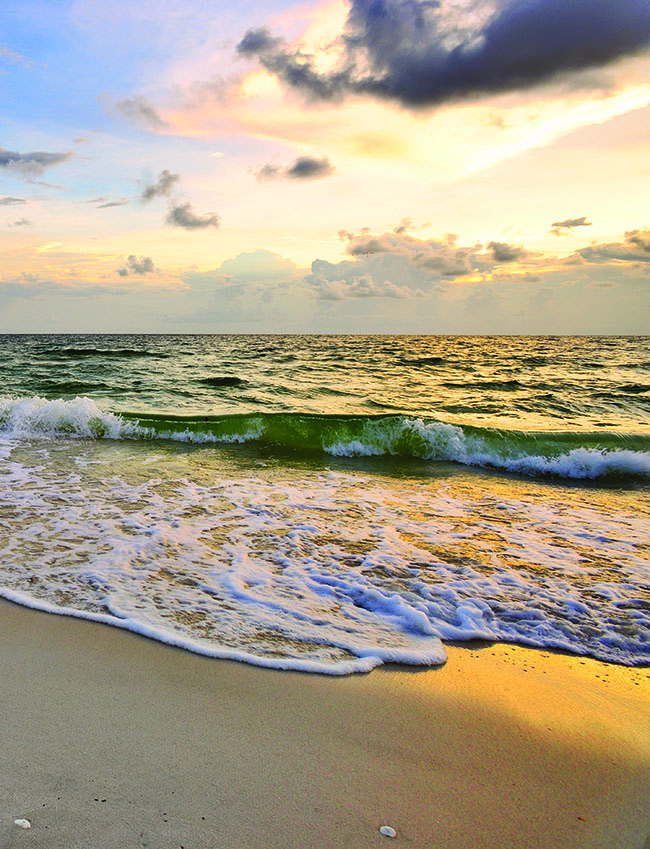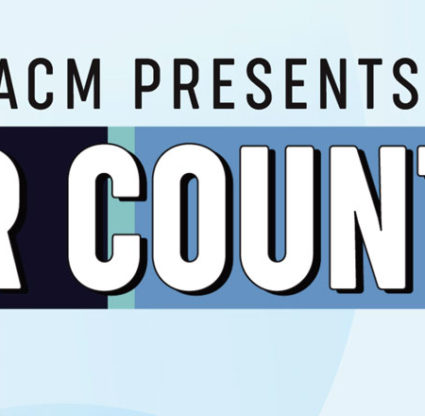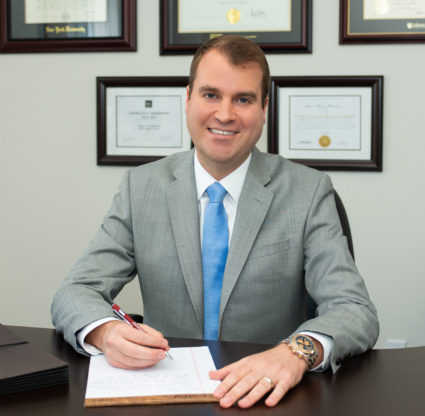One of the great joys of our jobs at Gulfshore Life is that people often loop us in at the beginning stages of exciting projects. We hear about restaurants months before they open (see p. 91) and know about the newest developments, the latest big hire or the important new acquisition before everyone else.
But those are only projects in the works or moves already made. Lately, we’ve been thinking a lot about what’s not out there. What are the projects, ideas and innovations that could make our little corner of the world even better?
And while we certainly have our own opinions, we wanted to hear from the decision-makers, builders and influencers. So, in late August, we sent an email out to more than 200 of the most influential people in our area asking a simple question: What does Southwest Florida need?
The answers ranged from fairly obvious to insightful, from super serious to fun and funny. What follows is a snapshot of those responses—the 10 things our business, governmental and cultural leaders think we need the most. Plus, some of our favorite fun or off-the-wall answers (and a few head-scratchers).
1. Inter-county cooperation
We media folks tend to think of Lee and Collier counties as one big interconnected mass of humanity topping nearly 1 million and counting. But the truth is, outside of Interstate 75 and Southwest Florida International Airport, the idea of a unified “Southwest Florida” is a bit more fiction than fact. Things couldn’t be more different about Cape Coral and Naples, Fort Myers and Golden Gate Estates. Heck, even Marco Island and Sanibel Island share little outside of being surrounded by water.
But “Southwest Florida” represents a needed way of thinking, our respondents say. The only way to be competitive with major metropolitan areas in the state, while at the same time preserving the differences each community treasures, is through cooperation.
- “We need to think about dotted-line alignments that respond to strategic needs rather than constituencies. Development challenges in Southwest Florida require a response that acknowledges and accommodates (our) economic, demographic and cultural diversity. Standing alone, our companies, organizations, schools and local governments have neither the resources nor perspective to accomplish strategic goals.” Cathleen Morgan, Lee County School Board member
- “(We need) more of a regional outlook and perspective. Too many people draw the lines and look from only their city or county border perspectives rather than what is best for Southwest Florida. How can we partner together?” Sandy Stilwell, CEO of Stilwell Enterprises & Restaurant Group
- “(We need) government leadership that will promote regional relationships from all sectors of our communities, and (to) support an improved public relations program called: ‘Choose Us.’” Lavigne Kirkpatrick, chair of the Florida Board of Nursing
2. Aging issues
The area that makes up Southwest Florida has easily one of the highest concentrations of seniors in the world. So it makes sense that people are going to be concerned about how that will impact quality of life for everyone. It also makes the area a great place to experiment with ideas on how to best serve aging Americans going forward, both in terms of needed services and keeping them integrated into daily life and the economy for longer periods of time.
But before we can become a model for other areas on aging issues, we have to take a hard look at what is available currently and where there are holes in the system.
- “Collier County is the only county in the State of Florida that does not have any type of senior access center to provide information, services and programs as well as opportunities for seniors and their caregivers to socialize, meet with various agencies and find answers to a multitude of questions and problems.” Sallie Williams, owner of The Williams Consulting Group
- “Southwest Florida is twice the national average in over age 65 population. As the economy rebounds and we grow again, we will continue to be a service economy servicing a senior and retired population in addition to tourism. Retirees and seniors come here to live and thrive, not to vegetate and die. We should embrace aging as a key part of economic development and become the national laboratory on vibrant living for seniors. New products, services, programs and technology should be test-marketed here as we embrace aging as a key economic engine.” Jim Nathan, CEO of Lee Memorial Health System
- “The question is, ‘Who do you call to find out what’s available?’ Everything is reactive when there is an issue already. The more we educate our community about services before they have a need, the better service we’ll be able to provide. So we are starting a senior housing industry consortium to help educate about what things are available.” Vicky Tracy, director of The Arlington
3. Diversified economy
If we can channel James Carville for a minute, “It’s a diversified economy, stupid.” Growing our regional economy is definitely on a lot of people’s minds. But more important than just adding jobs in already thriving disciplines, such as construction and tourism, our respondents pointed to the need to attract more companies in non-service sectors, such as manufacturing, or bring more corporate headquarters to the area, such as Hertz.
This is obviously a lot easier said than done. But there is a strong belief this will help raise the tide under all the boats in our economic harbor. Others think that a diversified economy means looking at the diversity of the people, not just the businesses.
- “We need a better business climate other than tourism, and perhaps Hertz will bring that. If this market could be more business-oriented, then the entire market would prosper.” Elliott Singer, managing director of Fairview Advisors
- “(We need to) recognize that there is a great deal more to our local economy than tourism and construction. What about small manufacturers who build products and distribute them throughout the country and world? What about medical training and delivery of those services? What about small, local agricultural producers who serve local markets?” Thomas Scott, Lee County School Board member
- “If we want this community to continue to thrive, we must focus well beyond adding technology, efficient production processes and innovative products, new golf courses, stores and malls. It can be argued that none of these approaches will add significant measurable improvement to our lifestyle if everyone isn’t included, given respect and a fair chance. The big picture is that when we leverage difference and demonstrate cultural competence—and it is demonstrated in our business practices—we are in a better position to take advantage of market trends, demographic shifts and business opportunities.” Gail Williams, chief diversity officer for Hodges University
4. Water quality
If there is one natural resource we are very concerned about, it’s the water along the Gulfshore. But not just the quality of the water we drink. No, we understand just how important crystal-clear waters on and off shore are for our biggest economic driver—tourism. This has been an issue we’ve been monitoring for a while (see Gulfshore Life February 2012), but the record rainfall we’ve received in the past year has brought it to a head.
Or rather to a mouth, specifically the mouth of the Caloosahatchee River, where releases of nutrient-polluted water from Lake Okeechobee end up after the Army Corps of Engineers opens the flood gates. The water has caused all sorts of havoc for marine life in the brackish edges of the river’s ecosystem and led to algae blooms and fish kills, especially around Sanibel.
- “What does Southwest Florida need? One, clean water. I’m tired of the Corps of Engineers flushing their toilets in our direction. Two, clean water.” Marty Harrity, Sanibel Island City Council member
- “As a boater, in my opinion, we need to both improve the (inter-coastal waterway) as well as finally address the water flow issues into the Everglades. I witnessed firsthand the recent issues pertaining to the release of water from Lake Okeechobee on a recent boating trip to Punta Gorda; it was distressing to see how brown the open waters were.” Larry Sacher, Marco Island City Council member
- “We need to insure our beaches and estuaries remain clean and healthy. We, not they, need to construct a filtering system for the Caloosahatchee River in order to clean the water before it gets to us. By we, I mean us folks of the South who are most affected, both by our health and our economy, by the pollution. We cannot wait for the state/federal government to do it for us. By the time they clean the lake it will be too late for us. We need to do what we can and that is to take the Caloosahatchee and allow it to meander the way it once did so it can clean itself. In the meantime, let the state/fed government clean (Lake Okeechobee).” Clyde Butcher, photographer
5. Convention center
It was one of the many proposals for how to use the vacant Renaissance Village property in downtown Naples. It’s the subject of debate in Lee County, where the Harborside Event and Convention Center seems certain to be, if not replaced, at the very least given the Extreme Makeover: Convention Center treatment as part of the new development in downtown Fort Myers.
The uses for a new center seem limitless. Wouldn’t need to set up the big temporary tents for art events, could attract new convention business by piggy-backing our beautiful beaches and abundant golf.
- “The best asset to add in the Naples area would be a mini or boutique convention center, preferably at the old Renaissance [Village] site that is vacant now, but under new ownership. A center would provide the capability of doing art and antique fairs in a permanent building (as opposed to a tent), convention space for smaller regional companies, auto shows, etc.” Bill Meek, owner of Harmon-Meek Gallery
- “After serving on the Convention and Visitors Board in Oshkosh, it was clear that conventions helped the hotels and restaurants. Once people are here for conventions and exposed to the community, business owners might decide to locate here, people might chose to purchase a condo or house. Conventions are good for the economy. Many nonprofits who have large fundraisers have mentioned that they cannot find places large enough—a convention center could help that.” Eileen Connolly-Keesler, president and CEO of Community Foundation of Collier County
- “(We need) a large convention center to host much larger events. The area is perfect for such events, but additional hotel space would have to be built near the site. This type of business is not being pursued and left to go to Tampa, Orlando, Miami, etc.” Harlan J. Dam, president of Imperial Golf Estates Homeowners Association

6. Waterfront dining
Perhaps the thing longtime residents hear complained most about by those new to the area is the painfully low number of waterfront drinking and dining options outside of Fort Myers Beach. We’ve got these beautiful vistas, both on the Gulf and along the inland waterways, but there aren’t many establishments with access to them.
Residential development long claimed dibs on most of the prime Gulf-front real estate, so aside from a few hotel restaurants, there’s little to be done on that front. Your best bet for decent waterfront dining in that regard might be strategic friendships with folks in Pelican Bay towers, those along Gulf Shore Boulevard in Naples and those with beach access in Sanibel.
- “That’s what we moved down here for, to eat on the water. It would be great if there were more places. … Hopefully as they are developing the new Gordon River areas they’ll do something. It doesn’t need to be 10 (restaurants), but just one or two would be great. And they don’t need to be big, major restaurants. Just family-friendly places people can enjoy.” Mickey Gargan, state committeewoman for Collier County Democratic Party
- “My wife and I were driving up Fort Myers Beach a few months ago and noticed all the dining options. It was just restaurant after restaurant—some of them honkytonks, some nicer places. And we thought it’s a shame Naples doesn’t have more of this.” R. Wayne Mullican, Volunteer Florida commissioner
- “We have some of the most beautiful sunsets in the world, but not many places to enjoy them. Sunset picnics on the beach are great, but sometimes you want to wear heels and drink an adult beverage. And I appreciate a dive as much as the next girl, but our restaurants that have been on the water for years need to refurbish their buildings and their menus.” Stephanie McIntosh, member services administrator for Mediterra Community Association
7. Music venues
We’ve got more than a dozen theater companies. You can see art shows just about every weekend. But when it comes to culture, Southwest Florida is certainly lacking in one area—music clubs. From jazz to rock to just about anything else you can think of, our responders seemed to think nothing would liven up the entertainment scene quite like live bands.
Sure, you can see Harry Connick Jr. at Artis—Naples or Toby Keith at Germain Arena or Chicago at the Barbara B. Mann Performing Arts Hall. But where can you go to catch a great little jazz combo or up-and-coming singer songwriters? There just isn’t a Birdland or a 40Watt or a Stubb’s Bar-B-Q.
- “The area lacks venues for regular and more intimate live music performance of all kinds. Blues club (with national talent), rock club (not just digital music), experimental music—please, not country western—performance art, etc. These are available in many cities of note, but are not to be seen (here).” Andrea Clark Brown, architect
- “I really think we need a jazz club. A cool, comfy place where awesome jazz bands can play late into the night? Amazing.” Kristen Coury, founder/producing artistic director of Gulfshore Playhouse
- “Naples needs an amphitheater on the river on the new Gordon River Park. This will be a wonderful setting away from the majority of residential areas in the city for live outdoor entertainment. It is clear from the attendance at the many outdoor concerts we have that a venue specifically for outdoor concerts would be well attended.” Sam Saad, Naples City Council member
8. Intrastate travel
Getting out of state in a hurry couldn’t be easier. Just take a quick ride to Southwest Florida International Airport or a bit longer of one to get to the airports in Fort Lauderdale and Miami. But getting anywhere in the state, aside from those aforementioned places and Tampa, is a huge pain. Heading to Orlando? Plan for four hours in the car. Anywhere farther north, forget about it. It’s easier to get to Key West by boat than it is to get to Jacksonville by plane.
Now, some of this is our Southwestern- most location. But, in general, rapid transit through the Sunshine State is a drag.
- “Southwest Florida needs better intrastate air service that makes it easier for legislators and citizens to visit Tallahassee, makes it affordable for leisure travelers to visit other Florida destinations and makes it more efficient for business travel.” Ted Soliday, executive director of the Naples Airport Authority
- “I think that an inter-connectivity by rail to our regional airports is greatly needed. Imagine being able to hop on board here on the west coast and travel directly to Fort Lauderdale or Miami to catch your flight, also giving tourists the opportunity to land on the east coast, then train over and spend time here with us on the west coast and train to SW Regional or Miami to travel home.” Janet Martin, Bonita Springs City Council member
- “Southwest Florida needs more options in the way of intrastate air travel. I’m sure everyone who needs to travel to Tallahassee, Jacksonville, Orlando, Miami, Pensacola will agree with me that it is very expensive and lengthy to get to any of these places from here by air. There are very few direct flights, and if there are, the costs are prohibitive. Private charters are usually not a cost-effective option. We usually end up driving.” Gail Markham, founding partner of Markham Norton Mosteller Wright & Company, P.A.
9. Better-educated workforce
Previously, we mentioned needing to diversify our economy. Well, most people seem to think the best way to get that done is to up our game in the education department. Now, we aren’t talking about stealing Stanford or MIT and moving them to Immokalee. But we are trying to get a workforce that is ready to handle the challenges of the modern workplace, whether that means increasing the number of college-educated people in the region (right now it’s 31.6 percent for Collier and 24.6 percent for Lee) or refocusing high schools to promote technical skills among those who aren’t seeking a higher degree.
- “We need the education level to train people to become successful, professional business people, which seems to be lacking right now, according to some of the companies who have registered their concerns with the Chamber and Economic Development Dept. Many high-wage employers who have looked at the area, and even some who are already here, state concerns about the level of education that is lacking.” Donna Fiala, Collier County Commissioner
- “(We need) continued commitment to have local businesses work with the local educational institutions, both K-12 and four-year institutions, to educate and train future employees. Encourage local leaders in academia to think outside the box.” Barbara Berry, Collier County School Board member
10. Museums
You can never have too much of a good thing. While we have several museums dedicated to local history and Artis—Naples’ The Baker Museum, which houses a growing and impressive collection of 20th century art, there is definitely room to grow.
- “A cool, comfortable museum with interesting and unique exhibits around every corner would be a great way to enjoy a few hours in Naples while you recover from too much sun or a late night on Fifth Avenue South.” Stephanie McIntosh
- “We have no museum or venues that focus on the exclusive display and presentation of contemporary art and issues or high-level venues that strive to bring new art as well as national and international exhibitions of experimental, emerging or at least branded but edgy works of art to our city. As a result, the education that corresponds with the production of new art and contemporary trends is sorely lacking. This lost player in our local culture is made obscure to many for whom this magnificent and creative segment of current visual performance is almost completely unknown or foreign/off-putting or all-together dismissed at best.” John Carroll Long, artist
OTHER INTERESTING IDEAS
Although our top 10 ideas garnered critical mass in terms of support, the answers to our “What does Southwest Florida need?” query were in many ways very idiosyncratic. Here are 10 more of our favorite suggestions—some whimsical, some serious—that got one or two votes:
- In-N-Out Burger
- Downtown Naples movie theater
- Pizza places open after 9 p.m.
- Beach cabanas near Fifth Avenue South (so tourists would stay downtown after beaching)
- An upscale driving range, with membership capabilities
- Surf park/Standing wave
- New Orleans-style restaurant
- Real-time website for community and nonprofit events
- Hotels in downtown Fort Myers
- Ultra-high-end dining (think Alinea or Per Se)
—JF
HMMM … REALLY?
Some of the suggestions sent our way made us realize something: Talented, driven people often operate inside a bubble. Several things people thought we needed (including museums from the top 10) are things we already have. Maybe we need more of them, or maybe a few of our friends need to do a little exploring.
Microbreweries: Off the top of our heads, there’s Naples Beach Brewery, Fort Myers Brewing Company, Point Ybel Brewing Company and Beecher’s Brewing.
Greater support for the arts: If anything, Southwest Florida is a little too passionate about its arts groups. See what happened when The Phil changed its name to Artis—Naples?
More pet friendly: It’s hard to go anywhere without seeing someone with a dog in tow. Don’t get us wrong, we are big fans of our four-legged friends. But other than on the beach and inside some restaurants, we have a hard time finding any place they can’t go.
Affordable entertainment: While increasing the diversity of entertainment options is a cause we fully support, perhaps you haven’t looked around enough. There’s Art Walk and Music Walk in Fort Myers; on Monday nights, the Fort Myers Film Festival holds $6 screenings at the Sidney & Berne Davis Art Center; Fred’s Food, Fun & Spirits in Naples has live music almost every night. And those are just the first four things we could think of. (Still having problems finding things to do? Subscribe to our Weekend Insider e-newsletter: gulfshorelife.com/subscriptions/e-newsletters)
Transparent government: Thanks to Florida’s Government-in-the-Sunshine law, our state has one of the most transparent systems of government at both state and local levels. And thanks to Ray Rodrigues’ bill this year, now everyone is guaranteed the right to speak by simply following the appropriate protocol. There’s always room for improvement. But transparency is one area where Florida is already moving in the right direction.
—JF
Thanks to those who submitted their ideas:
Mary Baron—civic leader and philanthropist; Joe Bernard—COO, Physicians Regional Healthcare System; Barbara Berry—board member, Collier County Public Schools; Dwight Brock—Clerk of Courts, Collier County; Andrea Clark Brown—architect; Michael Brown—senior recruiter, BanyanBrown Solutions; Clyde Butcher—photographer; Bob Cacioppo—founder and producing artistic director, Florida Repertory Theatre; Denise Cobb—philanthropist; Eileen Connolly-Keesler—president and CEO, Community Foundation of Collier County; Kristen Coury—founder and producing artistic director, Gulfshore Playhouse; Joe Cox—attorney, Akerman Senterfitt; Harlan J. Dam—president, Imperial Golf Estates Homeowners Association; Jeanne Dozier—board member, Lee County Public Schools; Donna Fiala—commissioner, Collier County Commission; Mary Fischer—chair, Lee County Public Schools; Heather Fitzenhagen—state representative, District 78; Debra Frenkel—executive director/founder, Freedom Waters Foundation; Mickey Gargan—state committeewoman, Collier County Democratic Party; Marty Harrity—council member, City of Sanibel Island; Frank Haskell—founder, Barbara’s Friends Cancer Fund; Brad Havemeier—president, Gulfshore Insurance; Lavigne Kirkpatrick—chair, Florida Board of Nursing; Matthew Kragh—architect; Colleen Kvetko—president and CEO, Shamrock Bank of Florida; Lisa Lefkow—executive vice president, Habitat for Humanity of Collier County; John Long—artist; Barbara Mainster—executive director, Redlands Christian Migrant Association; Gail Markham—CPA and founding partner, Markham Norton Mosteller Wright & Company, P.A.; Janet Martin—council member, City of Bonita Springs; Jacke McCurdy—retired executive; Nancy McGovern—board member, Lee Memorial Health System; Stephanie McIntosh—member services administrator, Mediterra Community Association; Bill Meek—owner, Harmon-Meek Gallery; Cathleen Morgan—board member, Lee County Public Schools; R. Wayne Mullican—commissioner, Volunteer Florida; Jim Nathan—CEO, Lee Memorial Health System; Kathie O’Brien—operations manager, Inn of Naples; Brenda O’Connor—senior vice president, The Greater Naples Chamber of Commerce; Liesa Priddy—commissioner, Florida Fish and Wildlife Conservation Commission; Elaine Reed—executive director, Naples Historical Society; Sam Saad—council member, City of Naples; Larry Sacher—council member, City of Marco Island; Thomas Scott—board member, Lee County Public Schools; Cynthia Sherman—philanthropist; Elliot Singer—managing director, Fairview Advisors; Ted Soliday—executive director, Naples Airport Authority; John Sorey—mayor, City of Naples; Sandy Stilwell—CEO, owner, Stilwell Enterprises & Restaurant Group; Matt Sutton—chairman, David Lawrence Center Young Executives Committee; Vicki Tracy—director, The Arlington; Kristin Vaughn—business development, estates and appraisals, Leslie Hindman Auctioneers; Chris Vernon—attorney, Vernon-Healy; Dr. Allen Weiss—CEO, NCH Healthcare System; Gail Williams—chief diversity officer, Hodges University; Sallie Williams—president, owner, The Williams Consulting Group




